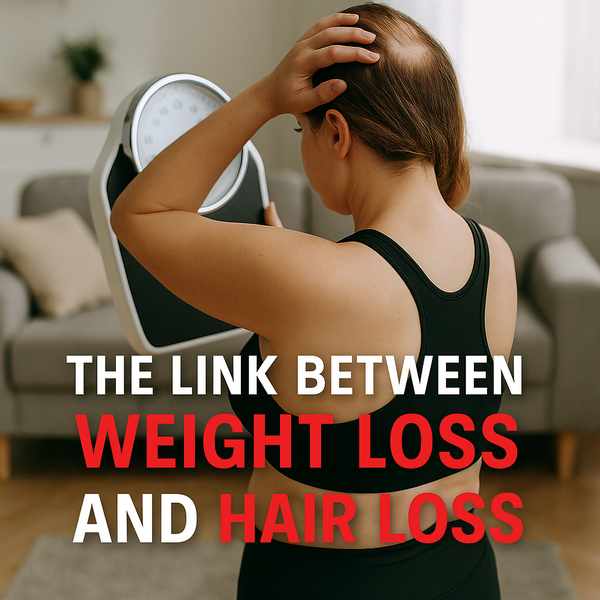Weight Loss and Hair Loss
Weight Loss and Hair Loss
Blog Article

So what’s the connection between weight loss and hair loss, and how can you manage both successfully?
Understanding why this happens and how to protect your hair can help you reach your goals without compromising your confidence.
Why Hair Loss Happens During Weight Loss
When your body undergoes a major change — especially fast weight loss — it can respond by pausing non-essential functions like hair growth.
Common causes include:
- Nutrient deficiencies
- Extreme calorie restriction
- Hormonal imbalances
- The body reacts to sudden changes
Temporary Hair Loss Explained
It’s a temporary condition where hair enters the shedding phase prematurely.
Key facts:
- Usually occurs 2–3 months after weight loss begins
- Hair falls out evenly across the scalp
- Hair usually grows back with time
Eat for Hair, Not Just Fat Loss
If you're trying to lose weight, be sure not to miss these nutrients:
- Protein
- Iron
- Biotin and other B vitamins
- Zinc
- Vitamin D
Skipping meals or using crash diets can easily lead to deficiencies that trigger hair loss.
Yes — With the Right Strategy
You don’t have to choose between losing weight and keeping your hair.
Tips include:
- Lose weight gradually
- Eat a nutrient-rich diet
- Consider a multivitamin
- Both affect hormones and hair health
- Hair needs water, too
What to Do If You’re Already Losing Hair
If you notice excessive shedding:
- Don’t panic
- Check for deficiencies or thyroid issues
- Replenish what’s missing
- Avoid tight hairstyles and harsh products
- Hair regrowth takes a few months
Should You Talk to a Doctor?
A doctor or dermatologist can help identify underlying issues like:
- Thyroid dysfunction
- Autoimmune conditions
- Severe nutritional deficiencies
The Truth About Weight Loss and Hair Loss
Weight loss and hair loss can be connected, but they don’t have to be permanent partners.
Prioritize nourishment, check here patience, and consistency, and your body will thank you — from head to toe. Report this page